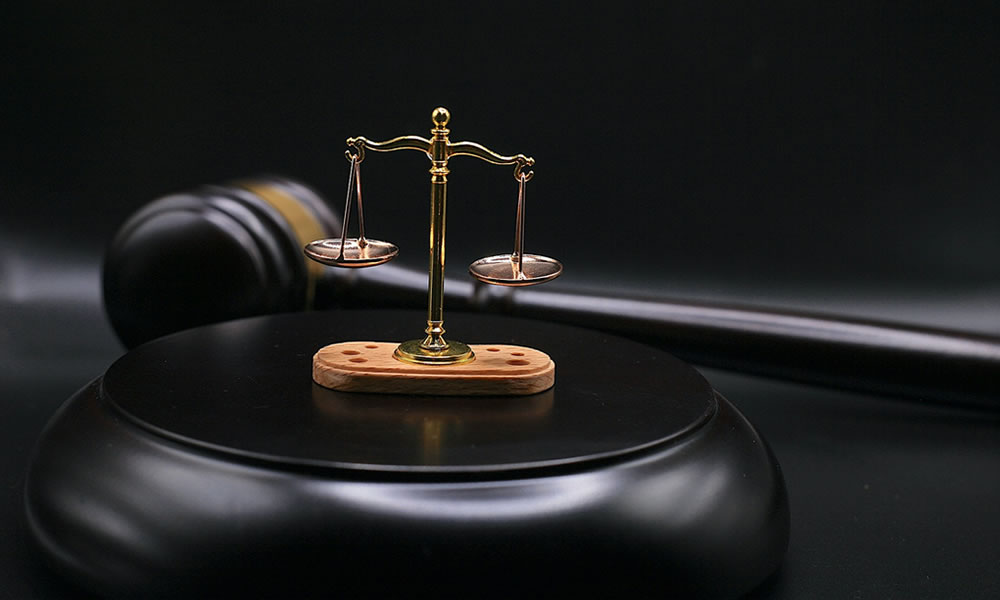The Remote Work Revolution: Navigating the Legal Landscape of the New Corporate Reality. A stabit…

Dubitante Opinions: Their History, Use, Implications, and Purpose in the Judicial System
October 18, 2024 8:04 am
Introduction: Dubitante opinions, though infrequent, hold significant value within judicial systems. These opinions, typically issued by judges who express reservations about the majority decision they concur with, illuminate the complexities and uncertainties inherent in legal interpretation. This paper delves into the historical roots, global usage, implications, and rationale behind dubitante opinions, offering a detailed analysis of their role and impact within the legal landscape.
Historical Background: The term “dubitante” originates from the Latin word “dubitare,” meaning to doubt. The concept of dubitante opinions can be traced back to the common law tradition, where judges sometimes expressed their hesitations regarding the majority’s reasoning without fully dissenting. These opinions represent a middle ground between outright concurrence and dissent, capturing judicial ambivalence.
In early English common law, dubitante opinions provided a means for judges to express their doubts without disrupting judicial collegiality. They served as a vehicle for intellectual honesty, allowing judges to highlight perceived flaws or uncertainties in legal reasoning. This practice underscored the iterative nature of legal interpretation, where judicial opinions evolve and refine over time.
Global Use of Dubitante Opinions: Dubitante opinions are predominantly found in common law jurisdictions but have made occasional appearances in civil law systems. Their usage varies significantly across different legal traditions and cultures.
United States: In the United States, dubitante opinions have been employed sporadically by both federal and state judges. For instance, in County of Allegheny v. American Civil Liberties Union (1989), Justice Byron White expressed his reservations about the majority’s interpretation of the Establishment Clause. Similarly, Justice Sandra Day O’Connor used a dubitante opinion in Planned Parenthood v. Casey (1992) to signal her uncertainty about the viability standard for abortion regulations.
United Kingdom: In the United Kingdom, dubitante opinions have been used by eminent jurists such as Lord Denning. In Central London Property Trust Ltd v. High Trees House Ltd (1947), Lord Denning highlighted his doubts regarding the application of promissory estoppel, signaling the need for future judicial examination. These opinions serve as a valuable tool for judges to express nuanced perspectives without fully dissenting.
Canada: Canadian courts have also seen the use of dubitante opinions, although less frequently. In R v. Morgentaler (1988), Justice Wilson expressed her doubts about the court’s approach to abortion rights, emphasizing the need for a more balanced consideration of women’s autonomy and the state’s interest. Such opinions contribute to the richness of judicial dialogue in Canada.
Civil Law Jurisdictions: In civil law jurisdictions like France and Germany, dubitante opinions are rare due to different judicial traditions. However, the spirit of expressing judicial doubt can be observed in the form of concurring opinions that highlight interpretive dilemmas. For example, in France, the Cour de Cassation has occasionally issued opinions that reflect internal judicial disagreements, fostering a culture of intellectual rigor.
Implications of Dubitante Opinions: Dubitante opinions carry significant implications for the legal system. They serve as a cautionary signal to future litigants and courts, indicating areas of potential legal instability or contention. By voicing doubts, judges provide a nuanced perspective that can influence subsequent legal discourse and judicial interpretation.
Influence on Future Cases: Dubitante opinions often signal to appellate courts and future litigants that a particular legal issue remains unresolved. This can prompt further examination and refinement of legal principles. For instance, Justice White’s dubitante opinion in County of Allegheny has been cited in subsequent Establishment Clause cases, shaping the trajectory of constitutional interpretation.
Contribution to Legal Scholarship: Dubitante opinions contribute to the development of jurisprudence by documenting judicial ambivalence. They provide a record of judicial thought processes, enriching legal literature and offering insights into the interpretive challenges faced by judges. This transparency fosters a more informed and robust dialogue within the legal community.
Case Study: U.S. v. Windsor (2013) In U.S. v. Windsor, Justice Samuel Alito issued a dubitante opinion expressing his reservations about the majority’s interpretation of the Defense of Marriage Act (DOMA). While concurring in the judgment to strike down DOMA, Justice Alito articulated his concerns about the potential implications for federalism and the role of the judiciary in defining marriage. His dubitante opinion has influenced subsequent discussions on the balance of power between state and federal governments in regulating marriage.
Do Dubitante Opinions Matter? The impact of dubitante opinions on the judicial process and legal outcomes is a subject of debate. Proponents argue that such opinions matter because they preserve judicial integrity and highlight the complexity of legal issues. By acknowledging doubts, judges demonstrate intellectual honesty and a commitment to rigorous legal analysis.
Judicial Integrity and Intellectual Honesty: Dubitante opinions reflect a commitment to intellectual honesty and transparency. Judges who issue these opinions acknowledge the inherent uncertainties in legal interpretation and the difficulty of achieving absolute certainty in complex cases. This honesty enhances the credibility of the judiciary and fosters public trust in the legal system.
Nuanced Legal Analysis: Dubitante opinions encourage a more nuanced and thorough legal analysis. By expressing reservations, judges invite further scrutiny and debate, promoting a deeper understanding of legal principles. This iterative process contributes to the refinement of legal doctrines and the evolution of jurisprudence.
Case Study: Lawrence v. Texas (2003) In Lawrence v. Texas, Justice Sandra Day O’Connor issued a dubitante opinion expressing her doubts about the majority’s reliance on substantive due process to strike down sodomy laws. While concurring in the judgment, Justice O’Connor emphasized the potential risks of expanding substantive due process and advocated for a more cautious approach. Her dubitante opinion has shaped subsequent debates on the limits of substantive due process.
Why Judges Write Dubitante Opinions: Judges write dubitante opinions for several reasons. Firstly, they may harbor genuine reservations about the legal reasoning underpinning a decision. By articulating these doubts, judges engage in a form of judicial dialogue, encouraging a critical examination of the prevailing legal doctrines.
Strategic Considerations: Dubitante opinions can reflect strategic considerations. Judges may use them to signal to higher courts or future litigants that the legal issue at hand is not settled and warrants further scrutiny. This can be particularly important in cases involving novel or contentious legal questions.
Judicial Restraint: Dubitante opinions can serve as a vehicle for judicial restraint. By concurring dubitante, judges acknowledge the binding nature of precedent while indicating their discomfort with its application. This approach allows judges to maintain fidelity to established legal principles while advocating for a reevaluation of the legal framework.
Case Study: Boumediene v. Bush (2008) In Boumediene v. Bush, Justice Anthony Kennedy issued a dubitante opinion expressing his reservations about the majority’s approach to habeas corpus rights for detainees at Guantanamo Bay. While concurring in the judgment, Justice Kennedy emphasized the importance of judicial restraint and the need for a careful balancing of national security and individual rights. His dubitante opinion has influenced subsequent discussions on the scope of habeas corpus protections.
Conclusion: Dubitante opinions occupy a unique and significant place within the judicial landscape. Their historical roots, varied global usage, and implications underscore their value in promoting a nuanced understanding of legal interpretation. While their impact on judicial clarity remains contested, the intellectual honesty and critical engagement they embody contribute to the richness of judicial discourse. As such, dubitante opinions will continue to be a vital tool for judges navigating the complexities of the law.
If you love our article on “Dubitante Opinions: Their History, Use, Implications, and Purpose in the Judicial System,” check back here for more legal news
Contact Information
Stabit Advocates
Website: www.stabitadvocates.com
Email: info@stabitadvocates.com
Phone: +250 789 366 274
For more information or to discuss your case, please contact us at www.stabitadvocates.com.
This guide is intended to provide general information and does not constitute legal advice. For specific legal advice tailored to your situation, please consult with a qualified attorney at Stabit Advocates.




This Post Has 0 Comments